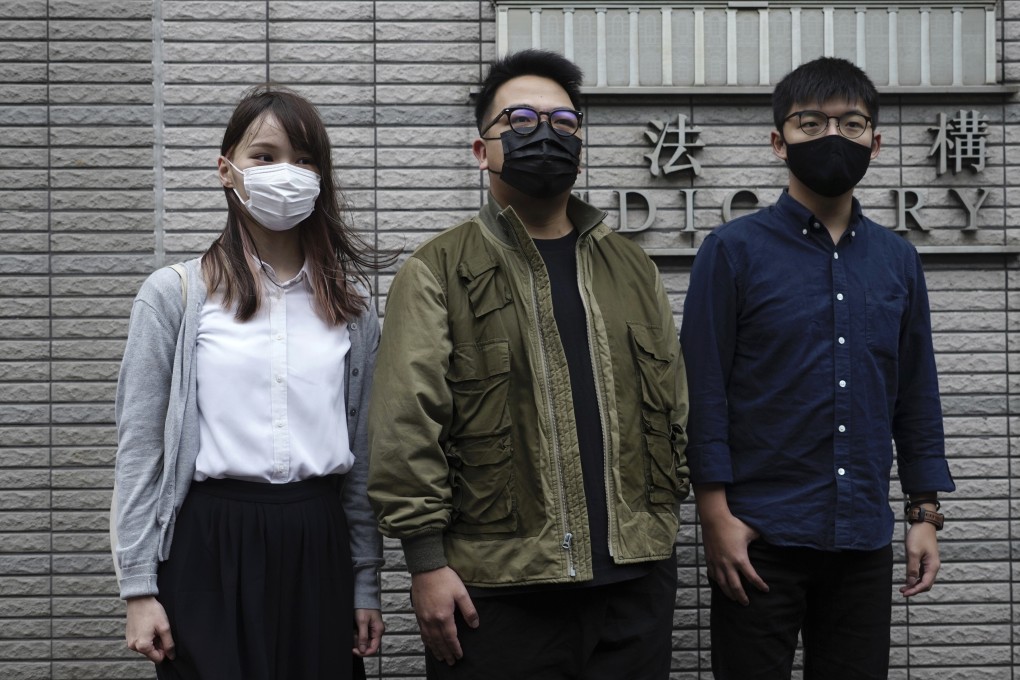Hong Kong lawmaker Regina Ip says Joshua Wong and Agnes Chow cases may determine if more national security legislation is needed
- In debate with former US State Department official, Ip says the ‘one country, two systems’ framework is ‘a work in progress’
- Two opposition activists may not serve more jail time after court proceedings are finalised, lawmaker says

Pro-establishment Hong Kong lawmaker Regina Ip Lau Suk-yee said the cases of two opposition activists, Joshua Wong Chi-fung and Agnes Chow Ting, would determine whether more laws need to be passed to close loopholes in the national security law that Beijing imposed this year.
Wong, 24, and Chow, 23, were remanded in custody at West Kowloon Court on Monday after pleading guilty over their roles in a 15-hour siege of Hong Kong’s police headquarters during the anti-government protests last year.
But they may not serve time after court proceedings are finalised, Ip said in an online debate with former US assistant secretary of state for East Asian and Pacific affairs Daniel Russel.
The exchange was part of a series organised by the Washington-based think tank Center for Security and International Studies (CSIS) and moderated by Bonnie Glaser, director of its China Power Project.

“Both of them have pleaded guilty to public order … and they continue to make political speeches, after they pleaded guilty, before and even after they were remanded they still spoke to the media about ‘Hong Kong people add oil, don’t give up,’ and that sort of thing,” she added, saying it was evidence that freedoms guaranteed by the city’s Basic Law remain intact.
Ip said it may take “two to three years” before the Hong Kong court renders final decisions on Wong and Chow because of the appeal process.
“That’s why our government said recently – in fact, the secretary for security John Lee said recently, when people asked him, ‘Are you going to reactivate Article 23 and introduce local legislation to fill the other loopholes?” Ip said, referring to the part of the Basic Law that requires Hong Kong to enact national security legislation on its own.
